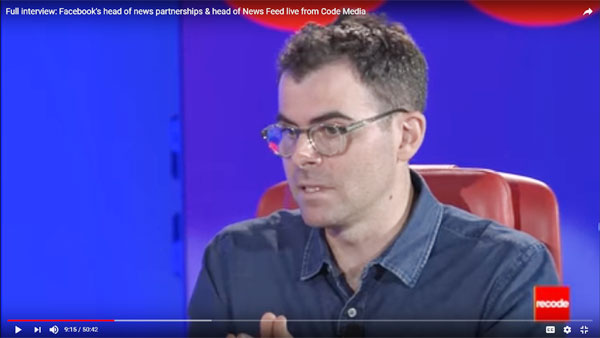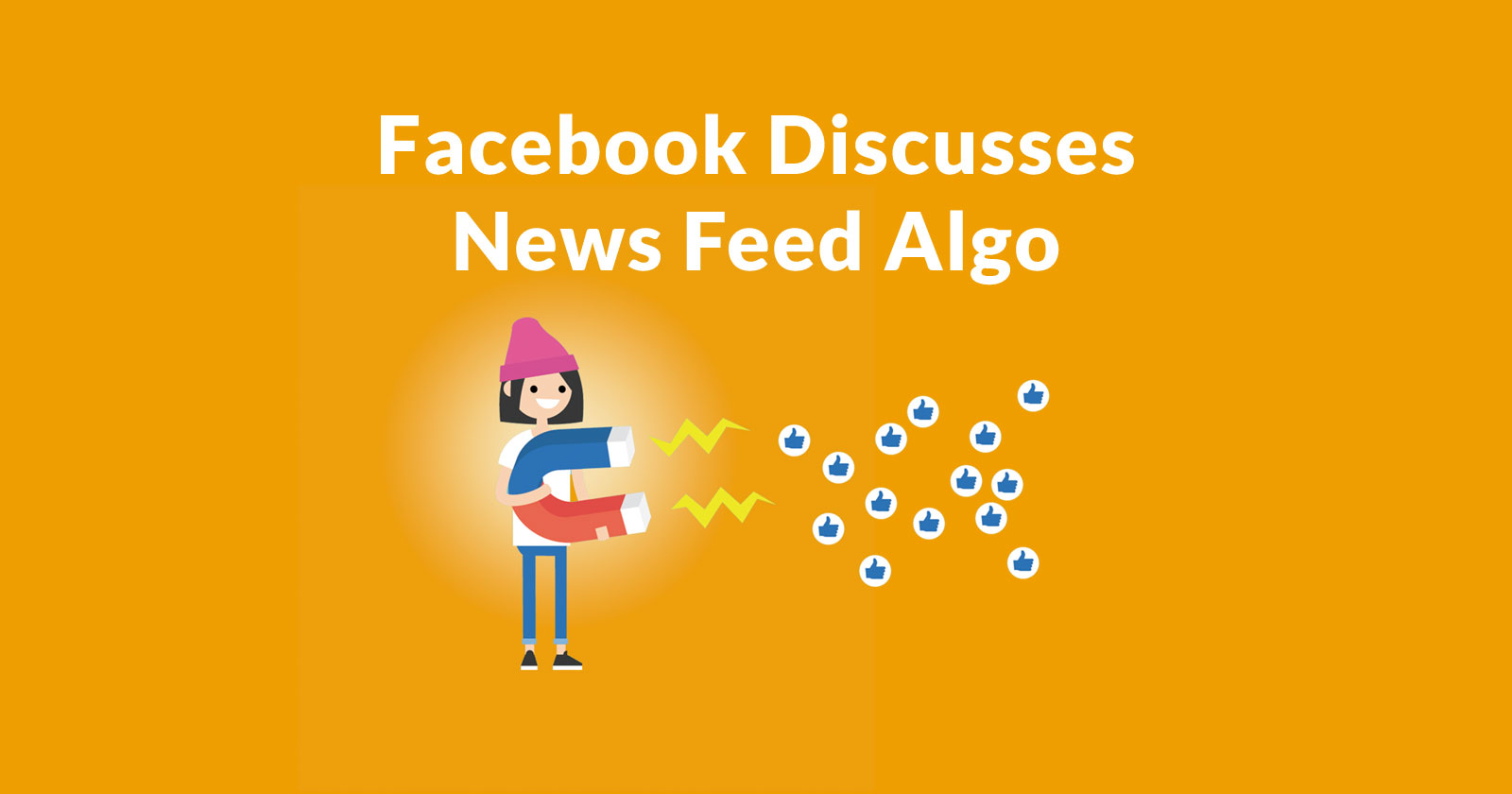Campbell Brown, Facebook’s head of news partnerships, and Adam Mosseri, Facebook’s head of News Feed were recently interviewed at an event where the conversation turned to the algorithm. Adam Mosseri discussed elements of how the news feed algorithm works. He offered interesting clues as to how the algorithm chooses what feeds to promote to the top and what to keep out. They also disclosed why some sites won’t be able to game their new local news focused news feed.
 Adam Mosseri, head of news feed at Facebook comments on Facebook’s news feed algorithm.
Adam Mosseri, head of news feed at Facebook comments on Facebook’s news feed algorithm.1. Facebook Feed Not Biased Toward Most Popular Sites
Facebook’s new algorithm is purposely tuned to not have a bias toward the most popular news sites, like the New York Times or Fox News. A bias toward big brands can sometimes manifest when an algorithm is tuned to show content from the most popular sites.
Popularity based algorithms make sense because they tend to satisfy the most users. Google’s search algorithm can be said to be a popularity based algorithm. The downside of showing what the most people want to see is that it doesn’t please everyone all the time. It satisfies the most users.
Satisfying the most users makes sense within the context of a search engine and the ten blue lines that make up a search page. But it makes less sense in the context of a social network like Facebook because Facebook can add extra dimensions to the popularity score and that’s what they have done. Here is the first clue about Facebook’s algorithm that was disclosed:
This isn’t a popularity contest. It’s not the publisher with the most people who trust it does the best based on this ranking score.
2. News Sites Popular with Wide Variety of Readers
It’s clear that the most popular publisher is not going to win Facebook’s feed wars. So what bias is Facebook introducing? Here is the second clue:
What we’re looking for is specifically, is publishers that are trusted by a wide variety of types of people. Specifically a wide variety of types of readers.
This is an interesting clue. If you organize people by a “wide variety of types” you’re talking about organizing them by clusters. Clusters can be based on social affinities, activities, hobbies, jobs, schools, events, age and more. Facebook has filed a patent related to bias, it’s called, Identifying User Biases for Search Results on Online Social Networks. Here is a relevant section:
User information may include characteristics of users such as age, income, geographic location, gender, sex, school attended, home town, nationality, language(s) spoken, etc.
I didn’t find anything about organizing users according to political bias. So I would not assume Facebook is doing that.
3. Wide Variety of Readership Makes it Difficult to Game Facebook
The news feed algorithm change is designed to prevent publishers from manipulating Facebook members in order to rank higher in the news feed. Here is what Facebook said:
And so that by definition is much more difficult to game because you’d have to get all sorts of people from different places, points of view, etc. to weight in, in the same way. Which is I think just structurally difficult.
4. News Sources Must be Broadly Trusted
The last clue offered is about ranking. Facebook is identifying news sources that are broadly trusted but also those are that are broadly distrusted.
So it’s intentionally designed… to try and get a good sense of what is broadly trusted and what is broadly distrusted but also to be difficult to game.
There’s more to the interview about what Facebook does to prevent gaming of the news feed as well as promoting sites. Watch the interview here.
Image by Shutterstock, modified by Author
Screenshot by Author





